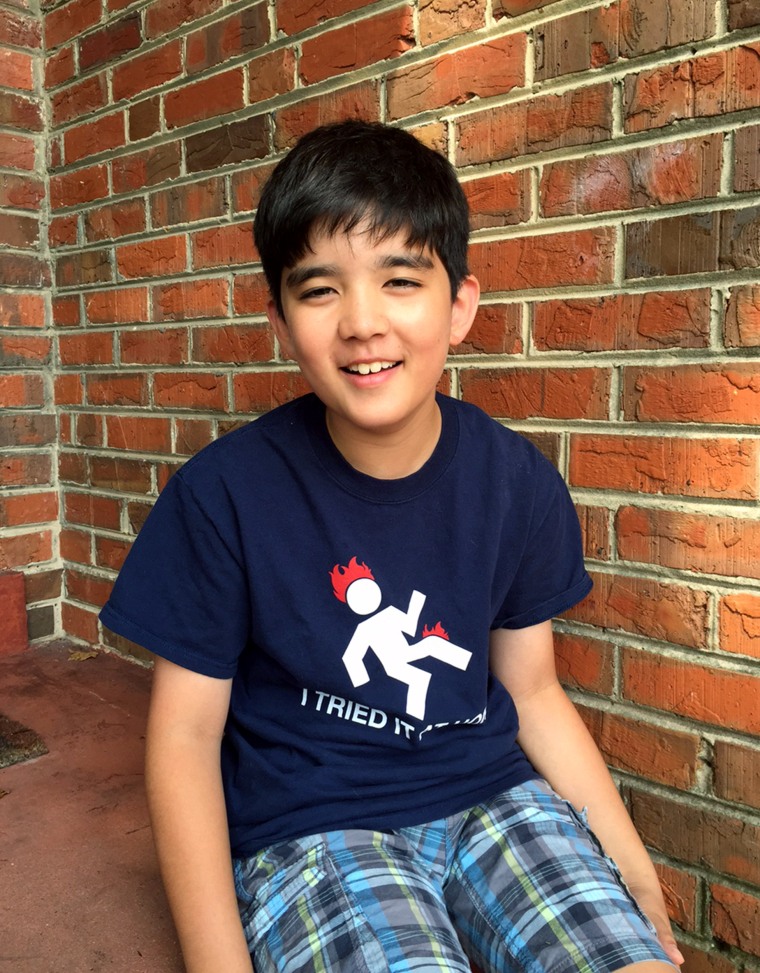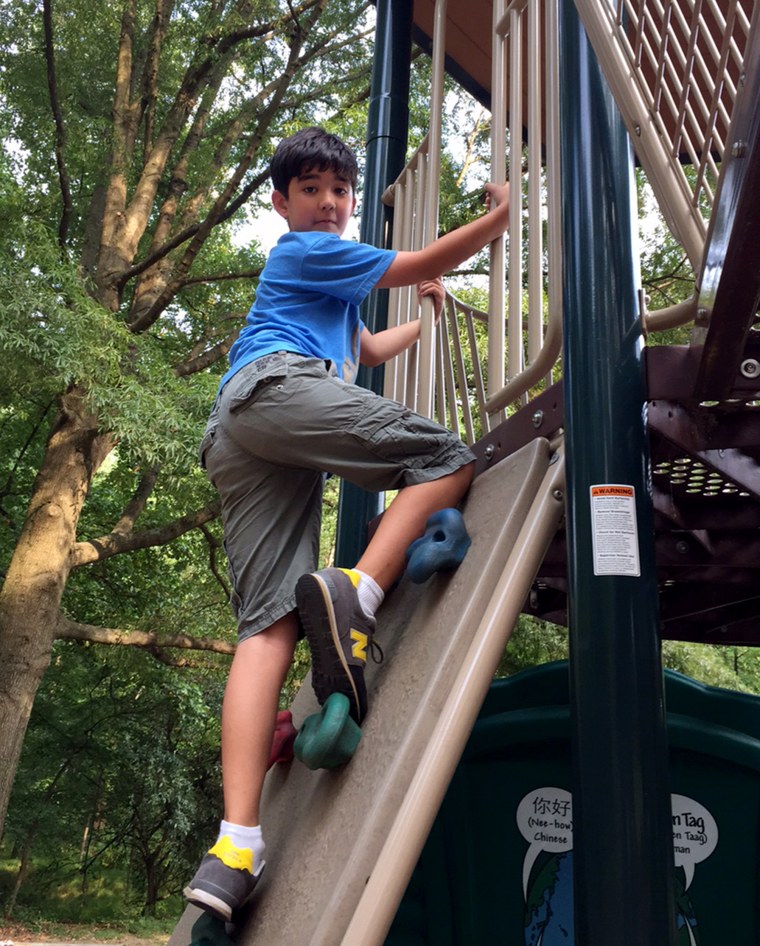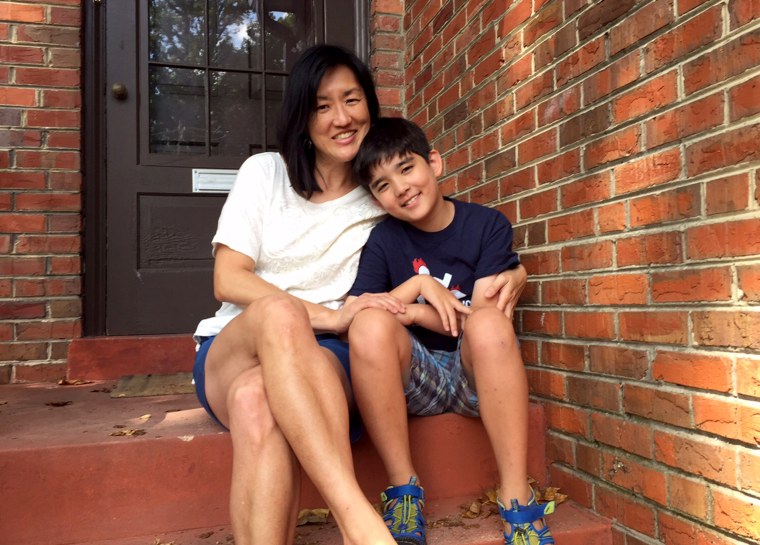I never heard of the free-range movement before this past January, when I wrote the first of several articles about a Maryland couple accused of neglect for allowing their children to play and walk home alone from neighborhood parks.
The couple live in Silver Spring, a suburb just outside of Washington, D.C. I live in the same community, only miles away. I also have a 10-year-old son, like the couple's older child.
I thought the similarities stopped there — until a police officer recently pulled my son aside for walking alone to a neighborhood park.

Like many parents today, my husband and I struggle to pull our kids away from electronic screens and into the great outdoors. So we thought it was great that our younger son, Reid, started taking walks and bike rides through the neighborhood every morning, before the summer heat set in too much, on the days he wasn't attending camp.
This was the case on a recent weekday when Reid told us he wanted to go for a walk. With his 13-year-old brother still asleep, he left the house by himself. Less than 10 minutes later, a police officer called our home, asking about our son.
My heart raced as I immediately imagined the worst. Was he hurt? Did he do something wrong?
RELATED: Maryland 'free range' parents cleared of neglect, still plan to sue CPS, police
All was fine, said the officer, who obviously found it unusual and potentially unsafe for a 10-year-old boy to be by himself in a suburban neighborhood.
“We worry about kidnappings with children this young by themselves,” he told my husband. He also said he wanted to be sure Reid wasn’t running away from home.
Reid had been on his way to a park located about a half-mile from our home. This was the same park that serves as his school bus stop. It requires crossing a relatively busy street, but he has walked to it many times alone before. He also has frequently biked there — by himself — to meet up with friends on their bikes.

Like many children his age, Reid could easily spend an entire day playing video games. Whenever possible, my husband and I encourage him and his brother to spend part of their days outside.
I’m not a helicopter parent, but I’m not a free-ranger either. I want to know where my children are and that they are safe, but I don’t feel they require constant supervision anymore.
When I shared the story on Facebook, friends expressed disbelief and even outrage that Reid had been questioned by a police officer. But I later learned others didn’t see any harm in what happened. And I was surprised by the reactions I got from several parents of Reid’s friends. Many admitted their children don't feel comfortable being left alone. I completely understand and respect that, although I did begin to wonder whether I was being viewed as less of a parent for my recent choices. A former teacher of Reid's even expressed gratitude that the police officer was looking after our son’s welfare.

This incident has me wondering about what is acceptable these days. When Reid got pulled over, he said he knew why.
“I knew it was because I was by myself. I was scared, because I’ve never really been stopped by a police officer,” he said. “I’ve been in a car when you were stopped by the police for a ticket, but never like this. This was pretty crazy.”
Reid knew about the articles I had written about Danielle and Alexander Meitiv, who were repeatedly accused of neglect by Child Protective Services because they allowed their children to walk home from various parks near their home.
The couple support a “free-range” style of parenting that encourages childhood independence through exploration. The movement was started and coined by Lenore Skenazy, a New York mom who drew notoriety for letting her then-9-year-old son take the subway home. The free-range movement evolved to combat what Skenazy saw as a generation of overprotective, micromanaging parents.
What happened to the Meitivs refueled a national debate about parenting choices.
I don’t know why my personal story concluded with a different ending than the Meitivs, or many other families nationwide who have faced similar encounters with police or CPS workers. Reid said after the police officer got off the phone with us, he told him, “Have a great time,” and drove off.
I certainly have never seen myself as a lenient parent — but the hesitation I felt about letting Reid go on another short jaunt disappeared after he returned home that morning, eager to tell his big brother about the adventure he just experienced. Half an hour later, he got on his bike and sped off alone to a friend’s house.
The home was even farther away than the park, but he had been pet sitting for the friend’s family, and no brush with the law was going to stop him from his job.
Follow TODAY.com writer Eun Kyung Kim on Twitter.